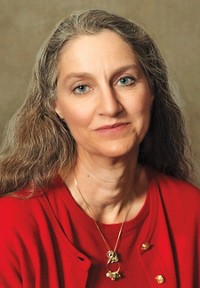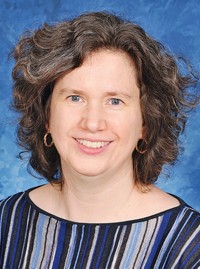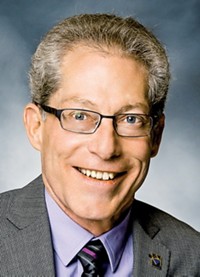Advertisement
Grab your lab coat. Let's get started
Welcome!
Welcome!
Create an account below to get 6 C&EN articles per month, receive newsletters and more - all free.
It seems this is your first time logging in online. Please enter the following information to continue.
As an ACS member you automatically get access to this site. All we need is few more details to create your reading experience.
Not you? Sign in with a different account.
Not you? Sign in with a different account.
ERROR 1
ERROR 1
ERROR 2
ERROR 2
ERROR 2
ERROR 2
ERROR 2
Password and Confirm password must match.
If you have an ACS member number, please enter it here so we can link this account to your membership. (optional)
ERROR 2
ACS values your privacy. By submitting your information, you are gaining access to C&EN and subscribing to our weekly newsletter. We use the information you provide to make your reading experience better, and we will never sell your data to third party members.
Comment
The ACS Board of Directors demystified
by John E. Adams, Chair, ACS Board of Directors
June 3, 2018
| A version of this story appeared in
Volume 96, Issue 23

Although the ACS constitution specifies that the board of directors “shall have, hold, and administer all the property, funds, and affairs” of the society, relatively few members know what the board actually does and how it operates.
This lack of awareness is entirely excusable, though, given that the board generally meets in executive session (a fancy term for “behind closed doors”) and reports only a fraction of what transpires at these meetings. Let me assure you that this apparent secrecy stems not from an effort to duck responsibility or a fear of transparency but rather derives from our standing as a corporate board of directors acting in a competitive environment. Nonetheless, because we work on behalf of the membership, we want you to have a better understanding of how the board operates.
First, let me dispel a misconception that we occasionally hear. The 15 voting members of the board (the president, president-elect, immediate past president, six district directors, and six directors-at-large) are all volunteers elected by some part of the membership; we receive no salary or stipend for our service. (ACS’s executive director, a paid employee of the society, is also a member of the board but has no vote.) Board members are reimbursed for reasonable and customary business expenses associated with our service.
So what do we do in our four board meetings each year? The meetings generally are structured around reports that provide context for the ensuing discussions and decisions. We regularly receive updates from the president, president-elect, and immediate past president about their program initiatives and other activities, including their interactions with other scientific societies. These reports help us coordinate their individual efforts with other ACS initiatives and identify opportunities for amplifying those efforts. We also get an extensive briefing from the executive director on current priorities of the senior management team, the status of the society (for example, membership, finances), and upcoming special events (such as the recent ABCChem meeting) and initiatives.
In recent years, we have also heard from one of the senior executives at each meeting about what keeps them up at night so that we gain a fuller picture of the challenges that the society and the society’s staff are facing. In all cases, we ask that these and other presentations be concise and that as much information and data be provided before the meeting so that we can maximize the time available for discussion. This background information customarily runs to several hundred pages.
Another regular feature of board meetings is reports from ACS Publications and our information services units, including CAS. These units play key roles in meeting the charter responsibilities of ACS, of course, but they also operate in a very competitive marketplace. In recent years, these units have generated the bulk of the funding for programs and services delivered to our members, so our corporate fiducial responsibility demands that we pay careful attention to their operations and plans for the future. Here is one of the places where confidentiality, especially when it comes to business strategies, is essential, so most of what we hear and discuss cannot be repeated outside our closed sessions.
Advertisement
The remainder of the meeting consists largely of reports of committees and of board liaisons to committees, and goodness, we have a lot of committees! Some of the standing committees of the board have a degree of delegated authority that permits them to act on behalf of the full board, but others make recommendations for board action or raise strategic questions that the board must address. Sometimes the issues raised can be disposed of easily; other times, though, there is a significant difference of opinion as to what the proper direction should be. You will not hear the details of these discussions because we want to ensure that every board member can speak freely and that every point of view is examined, including the “devil’s advocate” position. These discussions may yield consensus opinions or may result in formal votes, and when they do, those outcomes are what we report at a regular (that is, open) board meeting or at a council meeting, unless the issue involved personnel decisions, business strategies, or the details of legal matters. If a decision cannot be reached, the issue is likely to be referred back to the committee that raised it for further study.
Our meetings routinely end with self-reflection, discussing how the meeting went and how we could improve our sessions in the future. These final discussions are frank and open ended, with only board members present. We want to be as efficient and productive as possible when we are together and to do our best on your behalf. If you have questions about board operations that I have not addressed here, please contact us at secretary@acs.org.
Views expressed are those of the author and not necessarily those of C&EN or ACS.





Join the conversation
Contact the reporter
Submit a Letter to the Editor for publication
Engage with us on Twitter